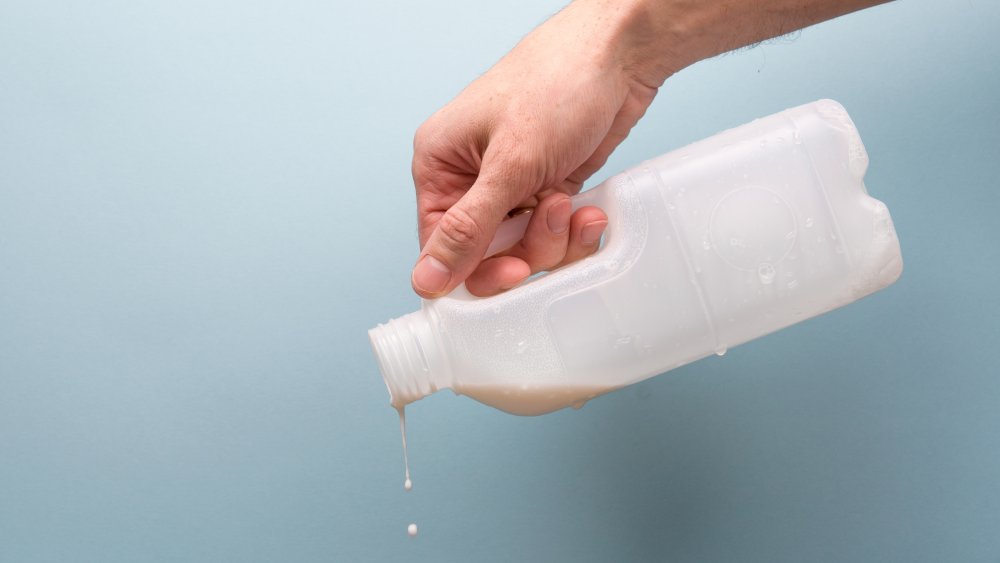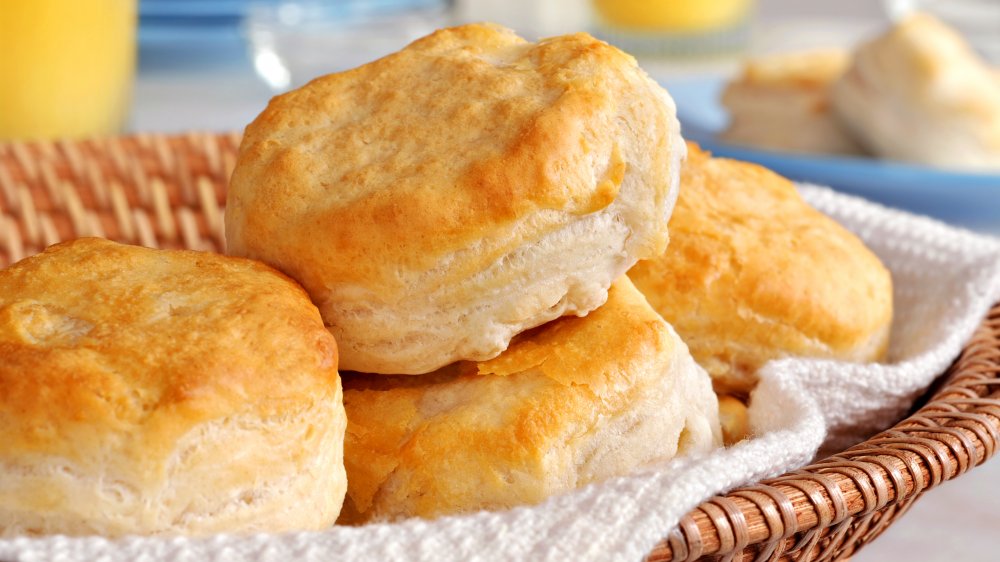The Real Reason You Should Be Saving Spoiled Milk
One of the first things many people do when they open up a container of milk is give it a sniff to see if it has gone bad. At the first hints of sourness, down the drain it goes. According to Healthline, spoiled milk has a very distinct, rancid odor that is hard to miss and increases in strength the longer you keep milk past its prime. Eventually, spoiled milk will even begin to turn yellow and become clumpy and slimy.
The rate at which milk spoils is based on a variety of factors, including the temperature it is stored, light exposure, and how much bacteria gets into it. If you think your milk might be spoiled but cannot tell by the smell, you should pour a full glass and take a small sip to check, which is unlikely to make you sick. Drinking larger amounts of spoiled milk can lead to nausea, vomiting, and stomach cramps, among other digestive issues. But it turns out many people get rid of milk they think is spoiled, way too soon.
What to do with spoiled milk
In an interview with NPR, chef Dan Barber (of New York based Michelin-starred restaurant Blue Hill) states that the problem with spoiled milk is that many people misunderstand food expiration dates and cannot tell when something has truly gone off. This leads to a huge amount of unnecessary food waste caused by people throwing out perfectly good food. While those "best by" dates do indicate when a food will be freshest, it is by no means the last day you can consume it. With milk, you can continue to use it if it is slightly sour, as long as it is pasteurized and not raw.
And just because you do not want to drink it, does not mean it has to be destined for the trash. Barber says he likes to use milk that is a little past its prime to replace buttermilk in recipes, like for biscuits or pancakes. Tasting Table asserts that using spoiled milk in baked goods might actually yield better results than fresh milk, due to the higher acidity. They do recommend not holding onto milk forever though, and tossing out anything that has mold in it.
If you're not a huge fan of baking, Food 52 suggests using soured milk to make cheese. They offer simple recipes for fresh cheeses you can make at home using a few ingredients that can be found at almost any grocery store.

